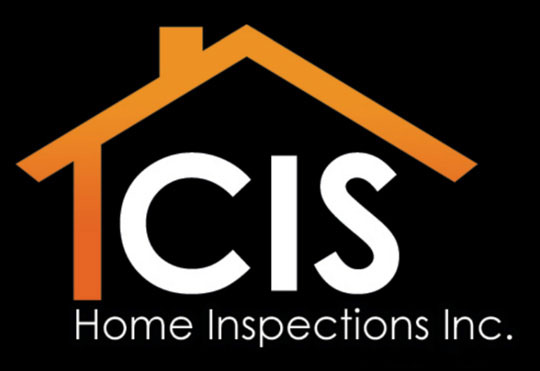Home Inspection Timelines – A Home Inspection is NOT a Formality – All Home Inspectors Are NOT Created Equal
We’ve been noticing a trend lately with the various time lines in which the buyer has to get his/her inspections performed. I’ve seen anywhere from five to seventeen days allotted for inspections. Heck, I’ve even seen instances in which the buyer has to get an inspection before the bank will even open escrow. I get this. But, what I don’t get is the nonchalant approach that some people have with respect to getting a home inspection scheduled. It is amazing, that some buyers we’ve spoken to are willing to forego taking time from work, play, or otherwise to have this one single critical service performed.
Similarly, buyers will often put off scheduling the inspection to the last minute, thereby, reducing their opportunity to have the service performed by a truly professional, fulltime inspection company. Most “good” inspectors who do this full time are booked days in advance, even in this market.
“Marc, are you suggesting that other companies that are available at a moment’s notice are unqualified or bad?”. No, I’m not suggesting that at all. I’m simply saying that after being in this business as many years as I have, you have a pretty good idea who your competitors are. Of course, some inspectors are better than others, like everything else in this world. It just seems to me that there are just a few of us who cannot accommodate an inspection “the very next day”.
Here’s some advice: when you are choosing between inspectors, verify or certify that the individual investigating the largest single investment of your lifetime for you. Choose wisely. Do your due diligence. Don’t just accept any company based on their schedule compatibility with yours.
Here are some Do’s and Dont’s
• Do not choose an inspector based solely on price.
• Most good inspectors are busy and typically charge a little more. Pay more for a good inspector now or pay later (meaning with deficiencies not discovered at the inspection).
• Do not choose an inspector based solely on his “association affiliations”.
• Do choose an inspector based on years of experience as a CONTRACTOR, qualifications, knowledge in construction, reporting methods, etcetera. Most of these associations do little to nothing to prove the knowledge or experience of an individual. They require a yearly fee for membership, a business that requires a profit like any other.
• Do not wait until the last minute to schedule the inspection.
• Do start interviewing inspectors before you even open escrow. You have no idea how many have such little real hands on experience in this industry. Remember, there are no licensing qualifications or in becoming an inspector…anyone can do this.
• Do not interview only the recommended inspectors on a realtor’s list – Yes, even me… you bet, interview all of these guys.
• Do ask friends, family members, and search the web. Spend as much time as you possibly can with this. Heck, you can even ask us. We’ll give you a list of the guys we feel are most qualified and refer our business to when were too busy. Just be sure you go beyond the realtor list.
• Do not limit your choice of inspectors based solely around your personal schedule, i.e. work, play, shopping etcetera…
• Plan to take a day off of work, if necessary. Trust me, this is too big of a purchase, investment or otherwise to treat merely as a formality in the escrow process. Try to be there. There is so much information you will want to hear by being present that just isn’t the same as reading the report afterwards.
• Do not choose an inspector who is going to inspect your house in “the shortest time possible” as not to inconvenience others.
• Do choose an inspector who is going to take 2-3 hours on an average sized home. Do choose an inspector who is going to provide you with a thorough evaluation of your potential home, NO MATTER HOW LONG THE INSPECTION TAKES… Some sellers love to pressure the inspector to finish quickly.
• Do not choose anyone until you have sampled their reports and stay clear from checklist reports.
• Do ask for a sample of their report. Most inspectors should have one posted on their website. A narrative report is a must! I would never accept a check list style report as they are vague and inconclusive.
• Do not choose an inspector who is not insured.
• Do ask the inspector if they have Errors and Omissions and General Liability insurance. Insurance for home inspectors is very expensive and most full time inspectors should have this insurance. For your protection, you should insist that the inspector you choose has E&O and liability insurance. Some part time inspectors will typically omit this type of insurance simply due to costs.
• Do not choose an inspector who hasn’t performed at least 1,000 inspections.
• Do attempt to find an inspector who is seasoned. It takes years to perform at least 1,000 home inspections. Like with most things, you are likely to get better with repetition and home inspections are no exception. In fact, the more inspections you perform the better familiar you (the inspector) will become with any inherent issues that most housing tracks possess. We have performed over 10,000 inspections to date.
• Do not hire a part time inspector.
• Do try to hire an inspector who is full time for so many reasons mentioned in this post. Part time inspectors may charge a little less, but that’s because inspections are usually performed as “filler” to another full time trade or job. In my opinion, part time inspectors probably wouldn’t be part time if there was sufficient work available to them, which may directly speak to their ability as an inspector.
• Do not choose an inspector who offers to do work after the inspection.
• This is called a “conflict of interest” and is against the law in California.
• Do not choose an inspector who will not crawl under houses or go into attics.
• Do make sure that the inspector you interview will crawl under a house or go into an attic. These areas house some of the most important components of the home such as plumbing, framing, electrical, ducting, vents, etcetera.
• Do not choose inspectors who do not use INFRARED cameras.
• Do insist the inspector you interview uses an infrared camera with their inspection. The use of Infrared in an inspection is invaluable and can detect potential problems such as water leaks or electrical issues not seen with the “naked eye”.
Share this Post

